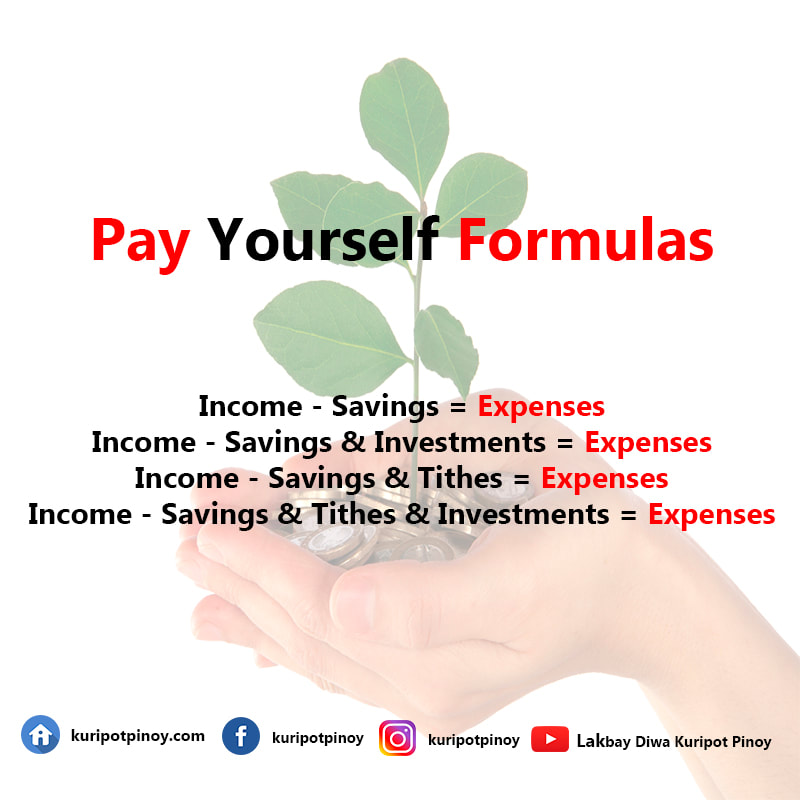Personal Development, Business, Finance, and Investing for Everyone
An investment in knowledge always pays the best interest.
|
Out of debt, out of danger. Day off your debt, you deserve to have your own money. There are two types of debt, good and bad. It is important to understand the difference between Good debt and Bad debt. Let me first start by saying that ideally, the best situation is to have no debt at all. In an ideal world, the perfect amount of debt is no debt. I say this because even if there is such a thing as "good debt" the fact remains that you still owe someone money and the Bible is always right and makes sense when it says in Proverbs 22:7 that "the borrower is the servant to the lender." However, in this day and age, it would seem that we couldn't escape the fact of debt. This is unrealistic for most people who aspire to own a home, automobile, or start a small business. Knowing The Difference Between Good And Bad Debt The difference between these two types of debt can be distinguished as follows: Good Debt Good debt is generally defined as that which generates income and increases your net worth. Good debt typically has a lower interest rate, something you believe will grow in value over time, helps increase your credit history, and is within your budget.
Bad Debt Bad debt is of course the opposite of good debt. This is debt that does not generate any income and does not increase your net worth. Bad debt is typically higher interest debt, not backed by a value increasing asset, unplanned within your budget, and can negatively impact your credit score.
Know What You Are Getting Into Earl Wilson once said, "Today, there are three kinds of people: the have's, the have-not's, and the have-not-paid-for-what-they-have's." Those caught in the sinkhole of debt belong to the last category. Make sure you are not one of them! If you incur good debt, make sure it doesn't become bad debt. If you have a habit of making bad debt, it's time to end such a bad habit. And if you are in an ugly situation now, fear not! It will come to pass. Don't lose hope. Strategies in paying off debts
Strategies in paying off debts Debt Snowball
Loan Restructuring Tips to get out of debt
Keep in mind that lenders are not permitted to do the following, even if you have excessive debt, in accordance with BSP Regulations on Financial Consumer Protection:
Can debt be a cause for your imprisonment? No individual shall be imprisoned for debt or non-payment of a poll tax, states Section 20 of the Republic of the Philippines Constitution of 1987. However, if they are proved guilty of fraud, debtors may be sentenced to prison. For instance, it may be a criminal act occurring under estafa if you were misled into thinking the debtor could pay because he had numerous assets while, in reality, he has no intention of paying you. Is death the end of debt? In Article 774 of the Philippine Civil Code, it is made clear who is responsible for paying off debts and other financial responsibilities left by the deceased: the successor. Succession is a mode of acquisition by virtue of which the property, Article 776 of the same code also states that "the inheritance includes all the property, rights and obligations of a person which are not extinguished by his death." In light of this, it's crucial for the surviving family to be aware of the deceased's liabilities, such as any outstanding loans, credit card debts, amortizations, or other debts that need to be paid off.
Remember:
4 Comments
Ronald
7/18/2022 04:35:57 am
I had so much fun shopping, I didn't realize that my credit card debt was growing and now I'm having a hard time paying. I don’t know how I will do to pay the bill.
Reply
Hi Ronald, remember this: If you are in debt, do not think of yourself as poor. Poor is permanent. Broke is temporary.
Reply
Tecson
8/6/2022 06:42:32 pm
What's the most reliable way to pay off debt?
Reply
Hi Tecson! The most reliable to eliminate debt is to avoid spending beyond your means, particularly with credit cards. Ideally, this will allow you to pay your bills in full and on time each month and avoid racking up on balances carried over from one statement to the next.
Reply
Leave a Reply. |
PLACE YOUR ADS HERE YOUR PAYDAY REMINDER FEATURED PARTNER FEATURED PROMOTIONS FEATURED MENTIONS PLACE YOUR ADS HERE PLACE YOUR ADS HERE For more updates about Personal Development, Financial and Investment Education. Join and Subscribe to my Newsletter. It's FREE! ABOUT THE BLOGGERHi, I'm Ralph Gregore Masalihit! An RFP Graduate (Registered Financial Planner Institute - Philippines). A Personal Finance Advocate. An I.T. by Profession. An Investor. Business Minded. An Introvert. A Photography Enthusiast. A Travel and Personal Finance Blogger (Lakbay Diwa and Kuripot Pinoy). Currently, I'm working my way toward time and financial freedom. PLACE YOUR ADS HERE Follow me on |












